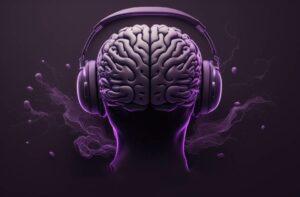The human mind refers to the complex set of cognitive faculties that enable individuals to think, perceive, learn, remember, reason, problem-solve, and experience emotions. It encompasses various mental processes and functions, such as consciousness, memory, attention, imagination, and decision-making. The mind is closely linked to the brain, which serves as the biological basis for these cognitive processes and functions.
While the mind is often used synonymously with the brain, the two concepts are distinct. The brain is a physical organ, whereas the mind is the collection of mental processes and experiences that emerge from the brain's activity. The study of the human mind spans several disciplines, including psychology, neuroscience, philosophy, and cognitive science.
Understanding the human mind has been a central goal of both scientific and philosophical inquiry for centuries. While significant progress has been made in recent decades, particularly with advancements in neuroscience and brain imaging technology, many aspects of the human mind remain mysterious and incompletely understood.
Mind
The brain and the mind are intimately connected, with the brain serving as the biological basis for the mind's cognitive processes and functions. While the brain is a physical organ composed of billions of neurons and specialized regions, the mind is a collection of mental processes, experiences, and faculties that emerge from the brain's activity. The study of the relationship between the brain and the mind is a central focus of disciplines such as neuroscience, psychology, and cognitive science.
The human mind comprises various components and cognitive faculties, some of which include:
Consciousness: The state of being aware of and able to think and perceive one's internal and external experiences.
Memory: The cognitive process that allows individuals to encode, store, and retrieve information.
Attention: The selective focus on specific aspects of information or experience while filtering out irrelevant information.
Imagination: The ability to create mental images, scenarios, or ideas that are not directly based on sensory input or current reality.
Emotion: Complex psychological and physiological responses to stimuli or situations, which influence behavior, cognition, and decision-making.
Reasoning and problem-solving: The capacity to analyze, evaluate, and synthesize information in order to draw conclusions, make decisions, or solve problems.
To enhance the functioning of your mind, consider implementing the following strategies:
Engage in regular mental exercises, such as puzzles, reading, or learning new skills, to keep your brain active and challenged.
Practice mindfulness and meditation to improve focus, self-awareness, and emotional regulation.
Maintain a healthy lifestyle, including regular physical activity, balanced nutrition, and sufficient sleep, to support overall cognitive function and brain health.
Seek out social connections and engage in meaningful relationships, as social interaction and emotional support can have positive effects on mental well-being and cognitive function.
Manage stress effectively through relaxation techniques, time management, and self-care practices.
Related Semantic Entities for Mind











